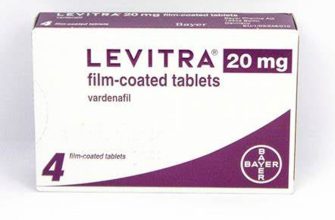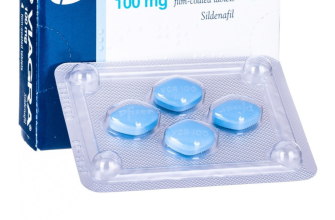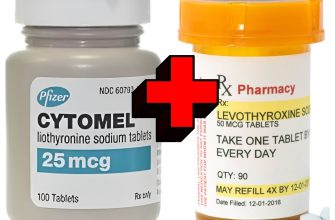Consider prokinetics like metoclopramide (Reglan) alternatives such as domperidone or erythromycin. Domperidone acts specifically on the upper gastrointestinal tract, offering targeted relief. Erythromycin, while primarily an antibiotic, stimulates motility at lower doses, proving helpful for some.
Dietary changes significantly impact gastroparesis management. Small, frequent meals are often recommended. Focus on easily digestible foods, reducing high-fat content and fiber intake to improve digestion. Consult a registered dietitian for a personalized plan.
Beyond medication and diet, consider lifestyle adjustments. Managing stress through techniques like yoga or meditation can positively influence gastrointestinal function. Regular, gentle exercise improves overall health and may indirectly help gastroparesis symptoms. Prioritize adequate sleep for optimal bodily function.
Important Note: This information is for educational purposes only and does not constitute medical advice. Always consult your physician before making changes to your treatment plan. They can assess your specific condition and recommend the most appropriate course of action based on your individual needs and medical history.
- Alternative to Reglan for Gastroparesis
- Lifestyle Changes and Dietary Adjustments
- Prescription Options Beyond Prokinetics
- Understanding Gastroparesis and Reglan’s Role
- How Reglan Works
- Limitations of Reglan
- Dietary Modifications for Gastroparesis Management
- Managing Specific Nutrients
- Practical Tips
- Medication Alternatives: Prokinetics
- Medication Alternatives: Antiemetics
- Lifestyle Adjustments for Symptom Relief
- Complementary and Alternative Medicine Approaches
- The Importance of Regular Medical Check-ups
- Finding the Right Treatment Plan: Collaboration with Your Doctor
Alternative to Reglan for Gastroparesis
Consider metoclopramide alternatives like domperidone. Domperidone stimulates gut motility, similarly to Reglan, but with a potentially lower risk of tardive dyskinesia, a serious side effect associated with metoclopramide. Your doctor can assess your suitability for domperidone, considering potential interactions with other medications.
Lifestyle Changes and Dietary Adjustments
Prokinetics aren’t the only answer. Dietary modifications can significantly improve gastroparesis symptoms. Focus on small, frequent meals, avoiding high-fat foods. Increase fiber intake gradually, choosing soluble fiber sources. Staying hydrated is also critical. Regular exercise, including gentle activity, promotes digestion.
Prescription Options Beyond Prokinetics
Erythromycin, an antibiotic, can sometimes be prescribed off-label to improve gastric emptying. However, long-term use carries its own set of potential side effects. Your physician might explore other medications, such as antiemetics to control nausea and vomiting, or pain relievers for abdominal discomfort. They will tailor treatment to your specific needs and medical history. Always discuss potential benefits and risks with your doctor before starting any new medication or altering your diet significantly.
Understanding Gastroparesis and Reglan’s Role
Gastroparesis slows stomach emptying, causing symptoms like nausea, vomiting, bloating, and abdominal pain. Reglan (metoclopramide) has been a common treatment, working by strengthening stomach contractions and speeding up the digestive process. It’s a dopamine receptor antagonist, meaning it blocks the action of dopamine, a neurotransmitter that can influence gastric motility.
How Reglan Works
Reglan increases the rate at which food moves through the stomach. This action provides relief from the common symptoms associated with gastroparesis. However, Reglan’s effectiveness varies between individuals, and long-term use carries potential side effects, including tardive dyskinesia, a movement disorder. Doctors carefully weigh the benefits against these risks when prescribing it.
Limitations of Reglan
Reglan isn’t a cure for gastroparesis; it manages symptoms. Furthermore, its side effects necessitate close monitoring. Alternative treatments exist, and choosing the right approach depends on individual needs and responses to medication. Always consult your physician to explore the best treatment options for your specific situation. They can assess your condition and suggest a personalized management plan.
Dietary Modifications for Gastroparesis Management
Eat smaller, more frequent meals. Aim for 5-6 small meals instead of 3 large ones. This prevents overwhelming your stomach.
Choose low-fat foods. Fats slow digestion, exacerbating symptoms. Opt for lean proteins and trim visible fat from meats.
Limit high-fiber foods initially. While fiber is beneficial, it can be difficult to digest with gastroparesis. Gradually reintroduce it as tolerated, starting with soluble fiber.
Avoid trigger foods. Common culprits include high-fat dairy, processed foods, and carbonated drinks. Keep a food diary to identify your personal triggers.
Managing Specific Nutrients
Ensure adequate protein intake. Protein is crucial for repair and building muscle. Prioritize lean sources like chicken breast, fish, and beans.
Consume easily digestible carbohydrates. Focus on refined grains like white rice and white bread initially; gradually introduce whole grains as tolerated.
Stay hydrated. Dehydration can worsen gastroparesis symptoms. Sip water frequently throughout the day.
Practical Tips
Cook foods thoroughly. This makes them easier to digest.
Avoid drinking fluids with meals. This can increase stomach volume, worsening discomfort. Drink fluids between meals.
Consider liquid supplements. These can provide essential nutrients if food intake is limited. Consult your doctor for recommendations.
Monitor your response to dietary changes. Note any improvements or worsening of symptoms to tailor your diet further.
Medication Alternatives: Prokinetics
Consider metoclopramide as a possible alternative, but be aware of its potential side effects like drowsiness and restlessness. Doctors often prescribe it cautiously due to these risks.
Erythromycin is another option, acting as a prokinetic agent. However, it’s an antibiotic, so prolonged use can lead to antibiotic resistance. Discuss the risks and benefits thoroughly with your physician.
Domperidone is a prokinetic medication that may be a suitable choice for some patients, but its availability varies by region. It’s crucial to check with your doctor about its availability and suitability for your situation. It may be preferable to metoclopramide for some individuals due to a different side effect profile.
Bethanechol chloride stimulates the muscles in your digestive tract. Your doctor can assess whether it is an appropriate alternative and discuss potential side effects, such as increased urination.
Always discuss all medication options with your doctor. They can assess your individual needs and medical history to determine the most suitable and safest treatment plan.
Medication Alternatives: Antiemetics
Antiemetics focus on controlling nausea and vomiting, common gastroparesis symptoms. Consider these options:
- Prochlorperazine (Compazine): This medication effectively reduces nausea and vomiting. Common side effects include drowsiness and dry mouth. Your doctor can help manage these.
- Metoclopramide (Reglan alternative): While similar to Reglan in its action, it may offer a different side effect profile. Discuss potential benefits and risks with your physician.
- Ondansetron (Zofran): This is a serotonin receptor antagonist, often used for chemotherapy-induced nausea, but also helpful for gastroparesis-related nausea. It’s known for being relatively well-tolerated.
- Promethazine (Phenergan): This antihistamine possesses antiemetic properties. It can cause drowsiness; use caution while driving or operating machinery.
Choosing the right antiemetic depends on your individual needs and response to medication.
- Your doctor will assess your symptoms and medical history.
- They’ll discuss potential benefits and risks of each medication.
- They’ll monitor your progress and adjust your treatment plan as needed.
Remember, always consult your physician before starting any new medication, including antiemetics. They can help you create a safe and effective treatment plan for your gastroparesis.
Lifestyle Adjustments for Symptom Relief
Eat smaller, more frequent meals. Aim for 5-6 small meals throughout the day instead of 3 large ones. This prevents overwhelming your stomach.
Choose low-fat foods. Fatty foods take longer to digest, exacerbating symptoms. Opt for lean protein sources and limit saturated and trans fats.
Avoid trigger foods. Common culprits include high-fiber foods (especially raw fruits and vegetables), carbonated beverages, and caffeinated drinks. Keep a food diary to identify your personal triggers.
Stay hydrated. Dehydration can worsen gastroparesis symptoms. Sip water regularly throughout the day.
Manage stress. Stress can significantly impact digestion. Incorporate stress-reduction techniques like yoga, meditation, or deep breathing exercises into your daily routine.
Maintain a healthy weight. Being overweight or underweight can negatively affect gastroparesis. Consult your doctor about a healthy weight range for you.
Get regular exercise. Gentle exercise, like walking, can aid digestion and improve overall well-being. Avoid strenuous activity immediately after eating.
Consider dietary supplements. Probiotics may help improve gut health, while digestive enzymes can aid in nutrient absorption. Discuss these options with your doctor.
| Time of Day | Meal Suggestion |
|---|---|
| Breakfast | Oatmeal with berries (cooked, not raw) |
| Mid-morning | Greek yogurt with a small amount of fruit |
| Lunch | Chicken salad sandwich on whole-wheat bread (avoid large amounts of lettuce) |
| Afternoon Snack | Plain rice cakes with avocado |
| Dinner | Baked salmon with steamed vegetables |
| Evening Snack (if needed) | A small bowl of broth-based soup |
Regularly review and adjust your approach based on your body’s response. Working with a registered dietitian can provide personalized guidance.
Complementary and Alternative Medicine Approaches
Consider acupuncture. Studies suggest it may ease nausea and improve gastric emptying in some individuals with gastroparesis. Find a licensed acupuncturist experienced with gastrointestinal issues.
Try dietary changes. Focus on small, frequent meals. Avoid high-fat foods, and incorporate foods rich in fiber, such as oats and fruits. Experiment with different foods to find what works best for your digestive system.
Explore herbal remedies. Ginger, for instance, possesses antiemetic properties. However, consult your doctor before using herbal supplements, as they may interact with other medications.
Mindfulness techniques, such as meditation and deep breathing exercises, can reduce stress, a known trigger for gastroparesis symptoms. Regular practice may offer significant relief.
Probiotics, beneficial bacteria for gut health, might improve digestive function. Look for high-quality probiotic supplements containing strains shown to support gastrointestinal health. Always check with your doctor before starting any new supplement regimen.
Disclaimer: This information does not replace professional medical advice. Consult your doctor before starting any complementary or alternative therapies.
The Importance of Regular Medical Check-ups
Schedule annual check-ups with your gastroenterologist or primary care physician. These visits allow for proactive monitoring of your gastroparesis and overall health.
Regular check-ups offer several key advantages:
- Early Detection: Catching potential complications early, such as dehydration or nutritional deficiencies, leads to better treatment outcomes.
- Medication Management: Your doctor can adjust your medication regimen based on your progress and any side effects.
- Lifestyle Adjustments: Your physician can provide personalized guidance on diet, exercise, and stress management techniques to improve your symptoms.
- Preventative Care: Regular screenings help identify other health issues unrelated to gastroparesis, improving your overall well-being. Consider blood work to monitor vital organ function.
Between scheduled check-ups, contact your doctor immediately if you experience:
- Severe abdominal pain
- Persistent vomiting
- Unexplained weight loss
- Signs of dehydration (e.g., dizziness, dry mouth)
Proactive healthcare significantly improves your quality of life. Don’t wait until symptoms worsen–schedule your appointment today!
Finding the Right Treatment Plan: Collaboration with Your Doctor
Actively participate in your treatment discussions. Ask specific questions about medication side effects, potential interactions with other drugs, and long-term effects. Don’t hesitate to express concerns.
Maintain a detailed symptom diary. Record the timing, severity, and type of your symptoms, including nausea, vomiting, and pain. This data provides valuable information for your doctor.
Explore all treatment options with your doctor. This may include dietary changes, medication adjustments, prokinetics other than Reglan, and therapies like acupuncture or physical therapy. Consider the potential benefits and drawbacks of each.
Be honest about your lifestyle. Smoking, alcohol use, and stress can significantly impact gastroparesis. Openly discuss these factors with your physician to develop the most suitable plan.
Request regular check-ups. Gastroparesis management is an ongoing process. Schedule appointments to monitor your progress, adjust medications as needed, and address any new symptoms.
Seek a second opinion if you’re unsatisfied with your current treatment. A fresh perspective might lead to improved symptom management.
Understand that finding the right plan takes time and patience. Work closely with your doctor, communicate clearly, and remain proactive in managing your condition.








